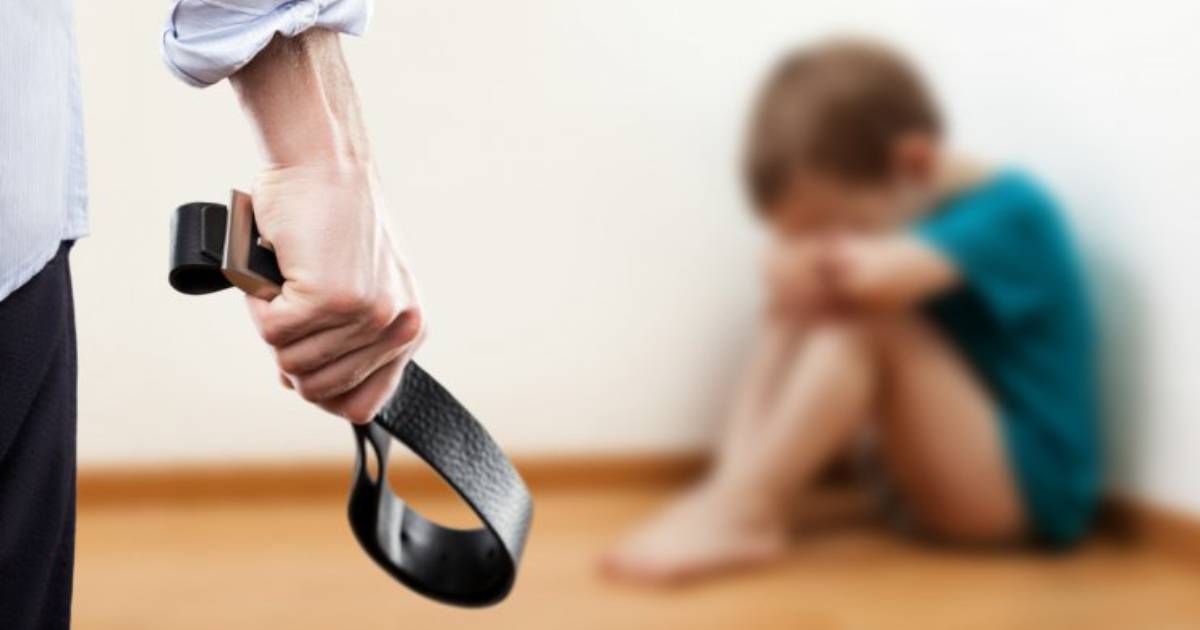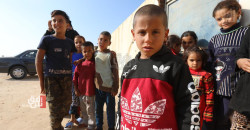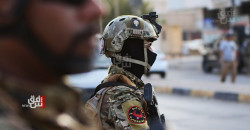Child abuse in Iraq: a cry for justice and systemic change

Shafaq News/ In a disturbing incident that has reignited public outrage over violence against children in Iraq, police in Karbala recently arrested a grandfather for severely abusing his granddaughter. The young girl, whose body bore visible signs of torture, was subjected to brutal violence in the Ain Al-Tamr area. Authorities acted swiftly, detaining the grandfather under Article 413 of the Iraqi Penal Code, which addresses physical assault.
While the arrest brought some measure of justice, the case underscores a broader and more alarming trend: the pervasive and escalating violence against children in Iraq.
Alarming Scale
Violence against children in Iraq has reached alarming levels, with reports indicating that four out of five children experience some form of violence at home or in school, according to the 2018 Multiple Indicator Cluster Survey (MICS6). Despite the decline in armed conflict in the country, a culture of violence persists, and children remain among its most vulnerable victims.
In 2024, Iraq’s Ministry of Interior recorded 14,000 cases of domestic violence, with the majority involving physical abuse.
Fadel Al-Gharawi, head of the Strategic Center for Human Rights in Iraq, revealed that 73% of the victims were girls, while 27% were boys. Shockingly, 6% of these cases involved abuse by parents.
These figures, according to Al-Gharawi, likely represent only a fraction of the problem, as many cases go unreported due to social stigma or fear of retaliation.
The trend has been worsening over the years. A study by the ministry, covering the period from 2019 to 2023, showed that the rate of violence is escalating. In 2020, the Ministry of Interior reported 12,000 cases of domestic violence. By the first half of 2022, authorities had addressed 55 cases of child abuse, returned 62 runaway girls to their families, and identified 22 runaway boys. These numbers, while troubling, barely scratch the surface of a deeply entrenched issue.
Root Causes
Activists and legal experts point to a complex web of social, economic, and legal factors driving the rise in violence against children. Tabarak Abdul Majid, a child rights activist, emphasizes that while the reasons may vary, none justify the abuse of children.
"Many parents and relatives resort to violence as a disciplinary method, believing it is justified under cultural traditions," Abdul-Majid explains. "The absence of strong legal deterrents, coupled with limited access to security institutions, exacerbates the issue."
Iraq has yet to pass comprehensive legislation addressing domestic violence or child protection."Instead of prioritizing child welfare legislation, the parliamentary Committee for Women, Family, and Children has focused on amending the Personal Status Law that allows child marriages, which in itself is a form of violence," she adds.
Additionally, societal norms and traditions often perpetuate violence under the guise of "discipline." Many parents and teachers still resort to physical punishment rather than modern pedagogical methods. "When a child grows up in an environment where violence is normalized, they may come to accept it as a legitimate form of upbringing and discipline," Abdul-Majid warns.
Legal Vacuum
The legal framework in Iraq further complicates the issue. While the country was among the first to ratify the UN Convention on the Rights of the Child in 1989, its domestic laws remain inadequate.
The Iraqi Penal Code (No. 111 of 1969) and the Juvenile Welfare Law (No. 76 of 1983) address violence against children to some extent, but they fall short of providing comprehensive protection.
The penal code prescribes severe punishments for crimes such as child rape (punishable by death) and severe physical assault (leading to over three years in prison). However, many forms of abuse fall into legal gray areas, leaving gaps in accountability.
For instance, Article 41 of the Penal Code permits "disciplinary actions" by parents and teachers, effectively legitimizing corporal punishment.
Article 41(1) of the Iraqi Penal Code states that "there is no crime if an act is committed under the right of discipline." This provision effectively legalizes parental and educational physical punishment within "reasonable" boundaries, allowing courts to interpret discipline in ways that fail to protect children.
Legal expert Mohammed Jumaa notes that Iraqi law lacks specific provisions for prosecuting child abuse. “In the case of the Karbala girl, the courts had no choice but to prosecute the grandfather under Article 413, which primarily deals with physical altercations between adults…The law does not differentiate between child abuse and an assault between two adults, revealing a serious legislative flaw."
Jumaa stresses the urgent need to amend the Penal Code or draft new legislation specifically targeting domestic violence and child abuse. He also points out that the Juvenile Welfare Law No. 76 of 1983 does not allow children under nine to file complaints without the consent of a parent or guardian, “making it nearly impossible for young victims to seek justice independently.”
Efforts to address these gaps have been slow and fraught with challenges. In 2022, the Iraqi parliament took preliminary steps to draft a child protection law, but the process has been hindered by political disagreements and societal resistance. Some lawmakers argue that the proposed legislation conflicts with traditional values and customs, particularly regarding parental authority.
The draft law aimed to assign the state greater responsibility for protecting children from violence, and ensuring their social, educational, and psychological well-being.
One of the bill’s most contentious clauses allowed children to file complaints against their parents in cases of abuse. Critics claimed this provision could undermine family structures, making the legislation difficult to pass without significant revisions.
What Needs to Be Done?
Human rights advocates and lawmakers are urging the government to take immediate and comprehensive measures to protect children from violence.
Fadel Al-Gharawi calls for “stronger national legislation, psychological and social support for victims, and widespread public awareness campaigns to highlight the devastating effects of violence on future generations.”
Nisreen Al-Zayer, a member of the parliamentary Human Rights Committee, emphasizes the need for a cultural shift in how society views violence against children.
“That deep-seated social attitudes must change…We need strict enforcement of protective laws to deter abusers,” she says, proposing launching awareness campaigns to educate the public about children’s rights and implementing stricter measures to curb abuse.
Al-Zayer also highlights the stalled Anti-Domestic Violence Law, which was approved by the Council of Ministers in 2020 but remains in legislative limbo due to political and ideological disagreements. Opponents claim it could empower women to challenge patriarchal structures, leading to increased resistance from conservative factions.
“Some political blocs oppose the law, arguing that it could undermine traditional family structures,” she says.





